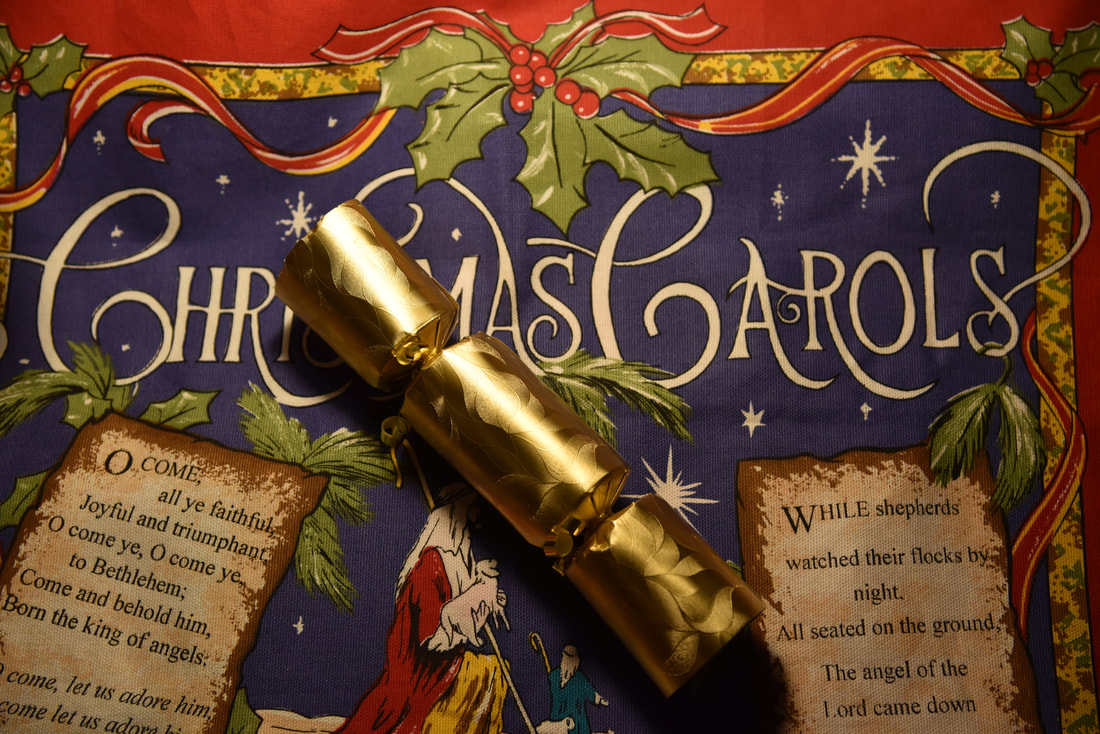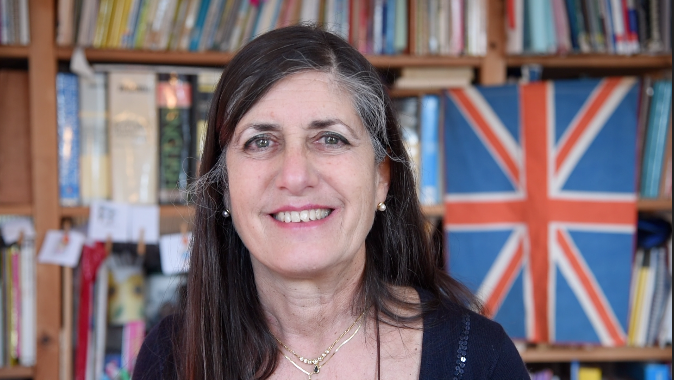|
Do you know the three peculiarities of the British Christmas? Every Christmas celebration in the world has its own traditions and the British Christmas has three peculiarities. The first one is Christmas cards: we hang our Christmas cards around the house on a string with tiny pegs because we tend to send a lot of Christmas cards, but really hundreds... I used to prepare about a hundred hand-painted Christmas cards and I used to write the address on each envelope by hand, the sender, then I'd choose a pretty stamp, which is very hard to get nowadays and I'd write a personal note inside each card after which I would send the 100 cards. However, the English peculiarity is that we don't only send cards to friends and relations who live far away but we also send cards to our neighbours and we generally put them in the post. This gives a lot of work to the postal services and that's why most Christmas cards should be sent by the beginning of December to make sure they arrive on time. So this is the first peculiarity: sending Christmas cards even to your colleagues, even to your neighbors but all through the post. Then another peculiarity is our Christmas cake. Now every country has a different kind of cake to celebrate Christmas; for example the Germans will have the Christstollen and the Italians will have the Panettone or the Pandoro and the British have a Christmas cake but particularly the traditional Christmas Pudding at the end of the meal on Christmas Day. Now what's peculiar about it? Well, it's really made many, many months in advance. Most of my friends prepare it around August and then once it's made with all the different dried fruits and a little bit of brandy it's cooked for many many hours. Depending on whether you cook it in the pressure cooker, because it's steamed, or else traditionally in a pot, it'll take quite a few hours to cook. In fact, on Christmas Day it's then steamed once more to revive it. When it's cooked we don't put it in the freezer and we don't put it in the fridge, we put it in a cupboard and about once a month we douse some brandy over it which will help it mature and will help it also be preserved with the alcohol. Some people say that brandy is a very good preservative and that Admiral Nelson's body, when he was killed at the Battle of Trafalgar in 1805,was apparently preserved completely immersed in a cask of brandy on board until they reached land. On Christmas Day we pour a little bit more brandy on it then we light it flambé and then we eat a piece which is very, very rich so you only need a small slice otherwise you'll have difficulty digesting it, as happened to someone I know when he got indigestion and had a terrible temperature the next day! Therefore, peculiarity N°.1: lots and lots of Christmas cards; peculiarity N°.2: this cake which is pre-prepared really a long time in advance and peculiarity N°.3: is the Christmas cracker, which some children think is a giant sweet. Well, no it looks like a sweet but it isn't. Every family will place a Christmas cracker next to their plates and generally, just before the meal, they will hold the cracker with the person next to them and pull it. Inside there's a little piece like a paper stick and this crosses over in the middle inside the cracker so that when you pull it it goes crack - that's why it's called the cracker. You crack open the cracker and inside you'll find a small present just like those in Easter eggs, that means of no value, then you'll find a joke which will make you laugh and finally you'll find a paper crown. Now what I find particularly peculiar is that everyone, not only children and grannies, but also your doctor, your teacher, the police inspector, everyone will spend Christmas Day eating with this crown on their head, which I think looks a little bit ridiculous but that's a tradition in England. Very often they're all different colours. These are three peculiarities of a British Christmas. What about you? Are there any peculiarities of Christmas in your country? I'd really enjoy reading about them in the comments below, so please put down any peculiarities of Christmas in your country. Looking forward to hearing about them, Best wishes for A WONDERFUL NEW YEAR!! Susan
0 Comments
Leave a Reply. |
Categories
All
Would you like regular English learning & teaching ideas? Subscribe to my blog so you don't miss a post!
AuthorMy name is Susan Brodar, born in London into a multilingual family and brought up bilingual English / Italian. Archives
December 2018
|





 RSS Feed
RSS Feed





